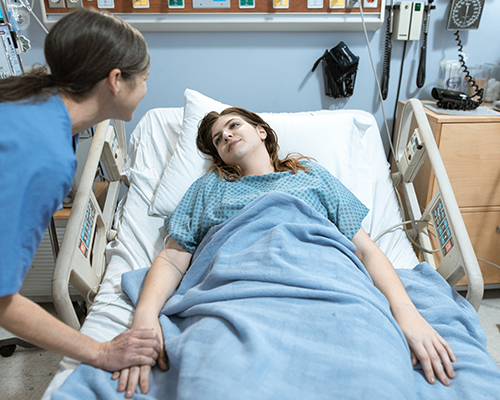When is gallbladder surgery required?
Written by:Gallstones are a very common condition, and patients will often have to undergo gallbladder surgery if they suffer from them. In his latest online article, renowned consultant surgeon Mr Nagammapudur Balaji explains this surgery in detail.

What is gallbladder surgery and why is it necessary?
Gallbladder surgery involves removing the gallbladder, usually due to gallstones. It is usually done by the keyhole method which is called laparoscopic cholecystectomy.
What are the different types of gallbladder surgeries?
The most common type of gallbladder surgery is done to remove the organ due to gallstones. However, surgery is also sometimes done if the patient is suffering from a tumour or cancer, although this is rare. The operation is a little bit different, and usually involves removing more than just the gallbladder.
In some instances, it can be difficult or unsafe to remove the gallbladder using keyhole surgery and open surgery will be done instead.
Sometimes gallstones can move out of the gallbladder and into the bile duct, and this requires surgery that removes the stone from the duct and removes the gallbladder as well.
How is the patient prepared for gallbladder surgery?
The most important part of gallbladder surgery is the selection of the patient. Now, gallstones are not at all uncommon. If you take 100 people off the road and scan all of them, there is a chance that about 15 to 20 people might have gallstones, but that does not mean that you're going to have to go and take everyone's gallbladder.
Gallbladder surgery is only done if the gallstones are causing problems for the patient. Once we decide that the patient needs gallbladder surgery, we explain the risks and benefits of the operation. We then prepare the patients as we do for any patient.
This surgery is usually done as a day case, so the patient can go home the same day as the operation. If it is a particularly complex surgery or if they have multiple medical problems, or if there are complications, then the stay is longer.

What can one expect during the recovery process after gallbladder surgery?
As I mentioned, this is a 24-hour or a day case procedure. If the operation happens in the morning, they're able to go home later in the evening. If there are any problems, they stay longer. Patients are usually back to normal after about a week, and back to work in about 10 days.
Usually, before surgery, anything fatty will make the pain from gallstones worse. After surgery, because the gallbladder and the stones are out, that should not be a problem but patients still need to be sensible.
Are there any risks or complications associated with gallbladder surgery?
Gallbladder surgery is what we call bread-and-butter surgery, as it's something we do quite often. If the patient is selected well, and the procedure goes well, it's usually a very straightforward procedure. As with all surgeries, there is a small risk of complications with the anaesthetic, wound infection, chest infection and the keyhole surgery needing to be converted to open surgery.
The bile pipe can get damaged in about one or two in 1000 surgeries. If that happens, then it's further surgeries and a long stay in hospital.
About 10 to 15% get diarrhoea after gallbladder surgery. We aren’t sure why some patients get this side effect.
Overall, it is a very safe operation.
Mr Nagammapudur Balaji is a revered consultant surgeon with more than 30 years of experience. If you would like to book a consultation with Mr Balaji, you can do so today via his Top Doctors profile.


